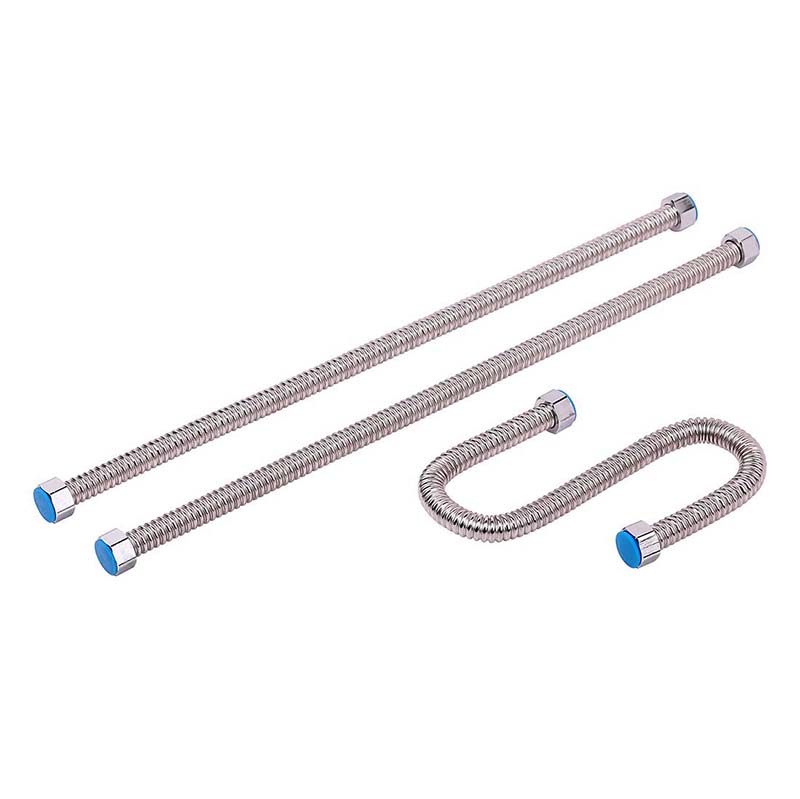Corrugated hoses are widely used in a variety of industries due to their flexibility, durability, and ability to handle extreme environmental conditions. These hoses are essential in applications ranging from plumbing to industrial processes, providing reliable performance in both static and dynamic systems.
Structure of Corrugated Hose
Corrugated hoses are designed with a series of ridges and grooves, making them flexible while maintaining strength. Typically made from materials such as stainless steel, plastic, or rubber, these hoses can be tailored to suit specific needs. Stainless steel corrugated hoses are commonly used in environments that require resistance to high temperatures, pressures, and corrosive substances. Meanwhile, plastic and rubber variants are preferred in applications where chemical resistance, flexibility, and lightweight characteristics are important.
The corrugation pattern provides the hose with excellent bending capabilities, allowing it to be installed in tight spaces or around obstacles without compromising its integrity. This flexibility is crucial for applications that involve motion, vibration, or constant movement, as the hose can absorb and dampen these forces without breaking or wearing out prematurely.
Key Applications of Corrugated Hose
Corrugated hoses find applications in many sectors, including:
Plumbing and HVAC Systems: Corrugated hoses are commonly used in plumbing systems to transport water, gas, or steam. Their flexibility allows them to be installed in complex layouts, while their durability ensures long-lasting performance.
Automotive Industry: These hoses are often used in exhaust systems, air conditioning systems, and fuel lines due to their ability to withstand high temperatures and pressures.

Industrial Applications: In industries such as chemical processing, oil and gas, and power generation, corrugated hoses are used to transport fluids and gases in extreme conditions. Their ability to resist corrosion and handle high pressures makes them ideal for these applications.
Agriculture: Corrugated hoses are also utilized in irrigation systems and for transporting agricultural chemicals. Their ability to resist kinking ensures smooth flow, making them highly efficient for agricultural operations.
Benefits of Corrugated Hoses
Flexibility: The corrugated design allows for greater flexibility compared to smooth hoses. This is particularly advantageous in tight spaces and in applications where the hose needs to bend or move frequently.
Durability: Corrugated hoses are designed to withstand harsh environmental conditions, including high temperatures, pressures, and exposure to chemicals. This durability ensures that the hose performs reliably even in challenging environments.
Versatility: Available in various materials, diameters, and lengths, corrugated hoses can be customized for different applications. Whether for transporting fluids, gases, or chemicals, there is a corrugated hose for every need.
Resistance to Pressure and Temperature: The robust construction of corrugated hoses enables them to handle high pressures and extreme temperatures, making them suitable for demanding applications in industrial and automotive settings.


 English
English Español
Español Deutsch
Deutsch 中文简体
中文简体












